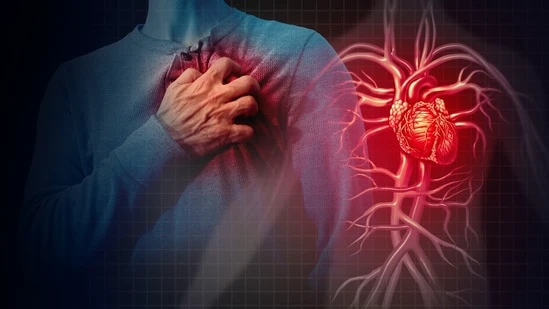Festivals are a time of celebration, togetherness, and food. Families come together and enjoy traditional dishes, sweets, fried snacks, and even alcohol.
While these delicacies can be tempting and delicious, they can take a toll on the heart, especially for those with existing conditions such as high blood pressure, diabetes, or heart disease.
Many tend to suffer from high blood pressure, blood sugar, cholesterol, and triglyceride levels because of overeating, unhealthy food choices, stress, and irregular routines. However, be extra cautious when it comes to your heart health.
Dr. Gaurav Surana, Consultant Cardiology at NewEra Hospital, Vashi, Navi Mumbai, shared with HT Lifestyle which foods to enjoy and which to avoid during the festival season.
How festivals impact heart
Festivals are equal to feasting. So, the intake of foods loaded with calories can increase. A majority of people may end up eating sweets, fried foods, and namkeens. Hence, the foods that are jam-packed with sugar, salt, and unhealthy fats can increase cholesterol levels, blood pressure, and blood sugar. Alcohol consumption and late-night celebrations further pressurise the heart.
 For those living with heart disease, this sudden change in diet and lifestyle can lead to chest pain, palpitations, high blood pressure, and even heart attacks. Moreover, lack of sleep, emotional stress from hosting or attending events, and skipping regular medicines during holidays can also be culprits and give a tough time to the heart. Everyone is recommended to take utmost care of their heart.
For those living with heart disease, this sudden change in diet and lifestyle can lead to chest pain, palpitations, high blood pressure, and even heart attacks. Moreover, lack of sleep, emotional stress from hosting or attending events, and skipping regular medicines during holidays can also be culprits and give a tough time to the heart. Everyone is recommended to take utmost care of their heart.
Vital tips for protecting the heart
It is necessary to cut down on sweets, fried, oily, canned, and processed foods. Practice mindful eating, eat in moderation, and take small but frequent meals. Drink enough water throughout the day, especially if consuming salty or oily foods. Avoid alcohol, smoking, and binge eating. It is imperative to add fresh fruits, vegetables, and salads to the diet.
Make sure to exercise daily for at least 45 minutes without fail. Light exercise, a morning walk, or simple stretches can help to maintain an optimum weight. Take medication if you have diabetes, cholesterol, or high blood pressure. Report signs such as chest pain, uneasiness, or dizziness to the expert and seek timely intervention. Remember, ignoring heart health can land you in trouble. So, pay attention to it right away.
